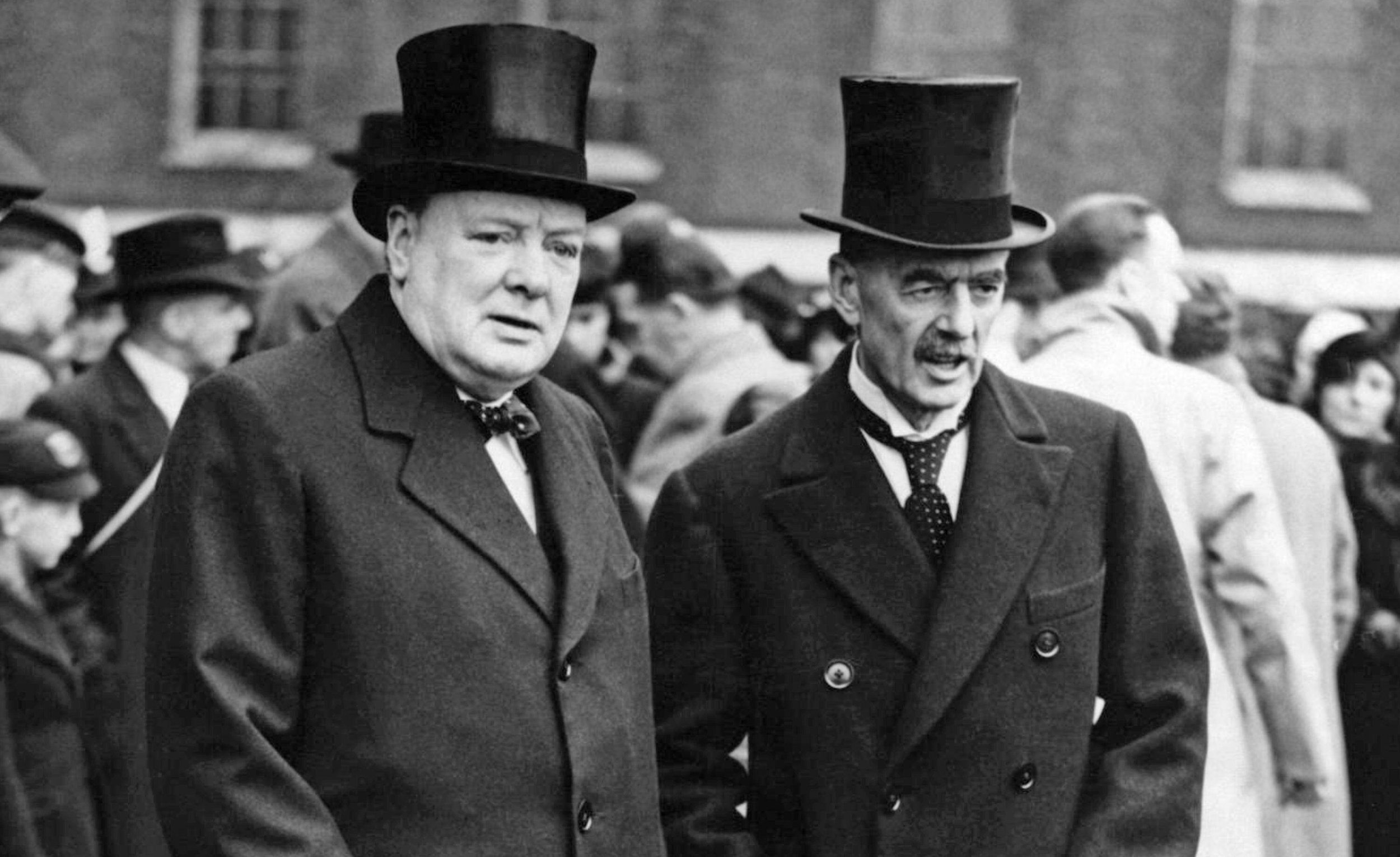Winston & Neville - Deeper Than Generosity
When Neville Chamberlain resigned his position as Britain’s Prime Minister on May 10, 1940, he had no idea that he had less than 200 days to live.
The eulogy that Winston Churchill delivered to Parliament in November 1940 describes the remarkable transformation of the relationship between the two British leaders in the final year of Chamberlain’s life.
“I had the singular experience of passing in a day from being one of his most prominent opponents and critics to being one of his principal lieutenants, and on another day of passing from serving under him to become the head of a Government of which, with perfect loyalty, he was content to be a member.”
Winston Churchill and Neville Chamberlain
The day after Churchill was named Prime Minister, he informed his predecessor. “No one changes house for a month.” Chamberlain and his wife Anne remained at 10 Downing Street for five weeks, while Churchill stayed at nearby Admiralty House. Historian John Lukacs noted: “that was more than a gesture: It was typical of Churchill, whose prime virtue was magnanimity, something even larger and deeper than generosity.”
Chamberlain joined Churchill’s Cabinet at the latter’s request. In a letter to one of his sisters, Chamberlain wrote: “Winston has behaved with the most unimpeachable loyalty. Our relations are excellent and I know he finds my help of great value to him.” At the same time, Churchill wrote to David Lloyd George, another former Prime Minister (albeit one who detested Chamberlain): “His kindness and courtesy to me in our new relations have touched me. I have joined hands with him and must act with perfect loyalty.”
Churchill genuinely relied on Chamberlain’s counsel. During his first five weeks as Prime Minister, Churchill flew to war-torn France five times - for meetings that each lasted one or two days. After France capitulated to Germany, Churchill rued: “I wish now that I had stayed there ten days, and had left Neville to carry on at home.” After Chamberlain had surgery for bowel cancer in August 1940, and rejoined the Cabinet for a short spell in September, Churchill welcomed his return with sincerity. “I am up and down. You are more steady. It is helpful to feel that my decisions are approved by your judgement.”
Eight months earlier, in the final days of Chamberlain’s run as Prime Minister, Churchill surprised many with his loyalty and impassioned defense of Chamberlain. After two days of withering attacks in Parliament, Churchill – then First Lord of the Admiralty, stood to defend his leader. Near the end of his heartfelt defense, Churchill offered this plea: “I say, let pre-war feuds die; let personal quarrels be forgotten, and let us keep our hatreds for the common enemy.”
Churchill's grace toward his predecessor was a revelation to me during my research. But that was by and large how Winston Churchill lived his life, built his Cabinet, and led his island nation through the war.
Thanks for reading,
Bill
PS: Hansard, which provides transcripts of speeches, debates, questions, and answers from Britain’s House of Commons and House of Lords, is one of the wonders of the world … at least for anyone with an interest in British history. Here is a link to Churchill’s full eulogy of Neville Chamberlain, with additional tributes from Clement Attlee, Archibald Sinclair, and George Lambert. For anyone interested in a lengthy and really deep dive into history, here is a link to Hansard’s transcripts from May 8, 1940, a day filled with bitter attacks on Neville Chamberlain, ending with Churchill’s impassioned defense of his Prime Minister.
